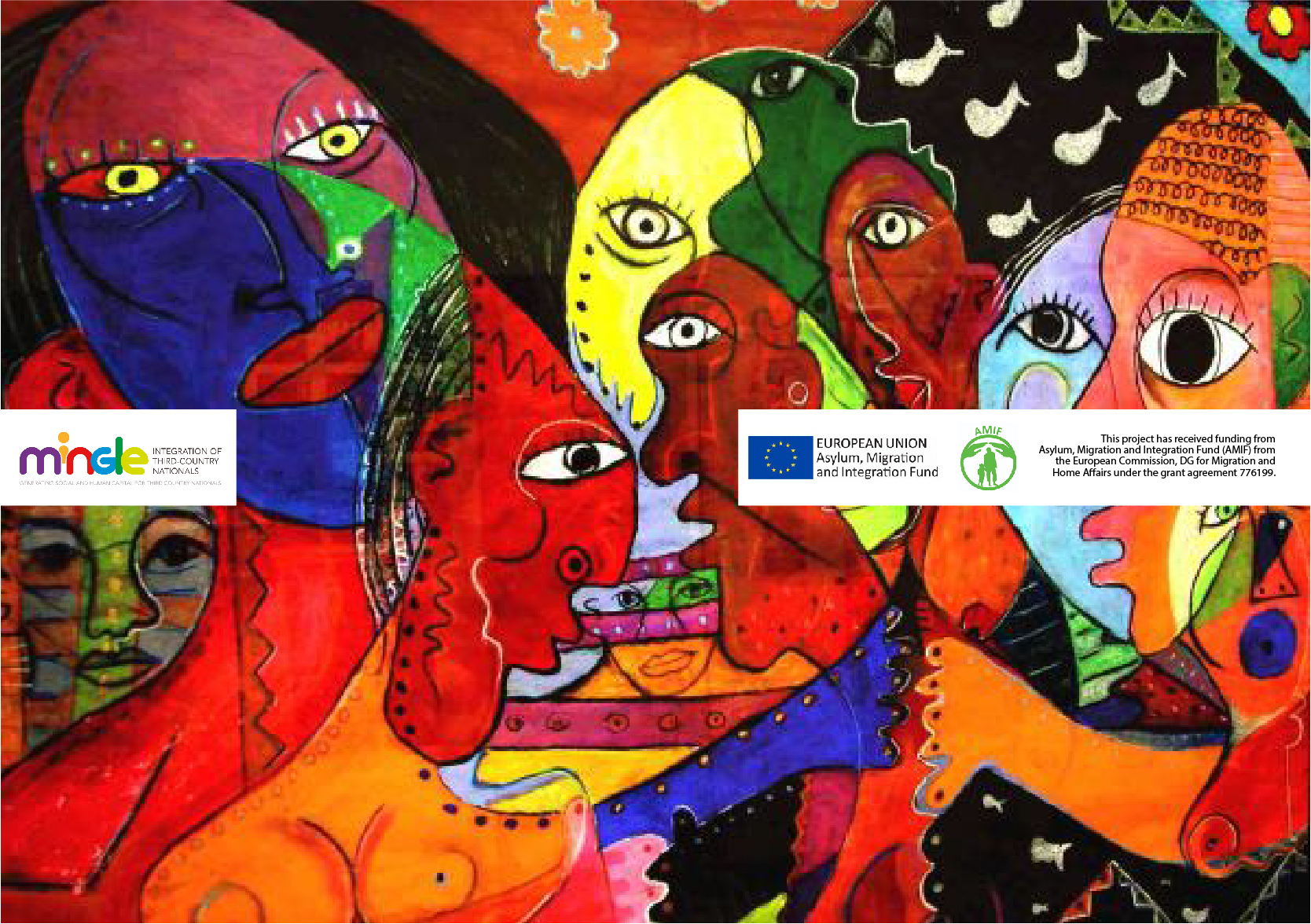NQCA – Networking for Quality Culture and Assurance – Berlin focus on cloudbased CVs
The target groups of the NQCA project were organisations and guidance practitioners who support people during their VET journey. In a second step the target group on the Berlin level were refugees who have recently arrived in Germany. The ethnic and sociodemographic structure of this group was very diverse so as the level of education of this group. They have been involved in the project to develop tools based on their actual needs to improve the Quality Culture of a VET journey through an interagency approach.
The Erasmus+ funded project NQCA – Networking for Quality Culture and Assurance was dedicated to designing, developing, implementing, and sustaining a model of interagency working which focuses on Quality Culture and Quality Assurance across the VET Journey. In this context the VET journey can be defined as one which includes career guidance or referral into relevant VET, VET training programmes and ongoing workplace learning or placement following on from VET training until the learner gets permanently employed. For MetropolisNet and gsub mbH (full member of MetropolisNet) the focus on the local level was the VET journey of refugees who have recently arrived in Berlin. In the preceding project NQA – Networking for Quality Assurance it was identified that quality tends to exist within the provision of services, it emphasised that quality can be significantly reduced during key transition points throughout a clients’ VET journey. The NQCA project which stated in 2015 end ended in 2018 builds up on these findings and proposed ab interagency approach that aims to strengthen the links between stakeholders, particularly in relation to shared goals and trust, and develop a culture of quality which will be strived for by a range of stakeholders representing various stages of the VET journey. On the European level the partnership developed a Toolkit for Policy Impact on the improvement on quality culture. This expertise was gained through the work on a local level. Each partner established focus groups with guidance practitioners, VET providers and learners to develop a concept of interagency work to improve quality culture based on the concrete local needs. MetropolisNet and gsub mbH decided to address the VET journey of refugees who have recently arrived in Germany. In 2015 and 2016 very high numbers of refugees arrived in Berlin and a majority of these people need to undertake a VET journey before they find employment. The VET system in Germany is very diverse and especially in the case of refugees an even larger variety of actors is involved in this process (Employment Service, Jobcentres, guidance providers, VET providers, volunteering organisations, …) These organisations mostly work separately from each other. In the focus groups that comprised VET providers, guidance practitioners and refugees it became clear that for both, the organisation that offer a certain service for e.g. guidance and the refugees it very often takes a lot of time of a guidance session to record basic information which the learner already gave to several other agencies during his/her VET journey and this time is missing for the actual guidance process. And for the learner it is also tiring to answer every time the same questions and it is sometimes not clear if it has positive or negative consequences for him/her giving all this information to so many institutions. So the focus groups were searching for a way to arrange a structured, effective and high quality service during the VET journey of refugees in Berlin. |
Based on the interagency approach the focus groups developed the concept of a cloudbased CV and a cloudbased conversation mindmap. These tools can help the guidance practitioner to simplify and shorten the process of collecting basic information during the first session and more time can be dedicated to the actual guidance process. The cloudbased conversation mindmap is another working tool that was developed based on the needs of the participants of the focus groups. The cloudbased conversation mindmap can be used to record all topics that the learner has already discussed with the different guidance practitioners. On the one hand this can help the learner to remember subjects that he has discussed with the guidance practitioners on the other hand these can be also helpful for a guidance session because that way the guidance practitioner can quickly get an overview of what has already been discussed and can take this into consideration during the conversation with the learner. To prevent any misuse of data there must be established a technical solution to make the learner the only person who has direct access to the cloud where the documents are saved. Like this the learner has the control about his/her information and can decide every time which data he/she uploads in the cloud and who he/she shows the information. Another advantage of this is that no organisation is excluded because there is no need to be part of a network to participate because the learner itself is the central point. During the NQCA project the idea has been tested with a small group of refugees in Berlin. MetropolisNet and gsub mbH are working together with the Senate of Berlin and the organisation gesbit mbH to further develop and implement the cloudbased CV and conversation mindmap as a sustainable tool for the daily use in the Berlin VET system. |
□ Citizenship & Civic Engagement □ Access to the labour market | □ Education □ Participation in political processes and in decision-making
|
☒ Others (Please specify)
The area of implementation was the VET system and vocational guidance system in Berlin, Germany.
Name: Jasmin Zouizi
Organisation: MetropolisNet
Telephone: +49 30 28409 223
Email: jasmin.zouizi@metropolisnet.eu
Homepage: www.nqca.eu
N.A.
